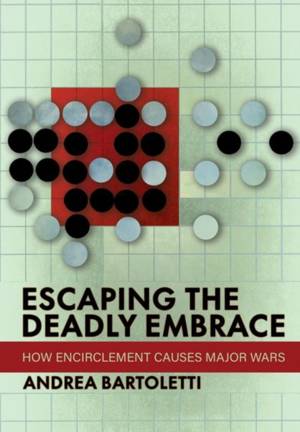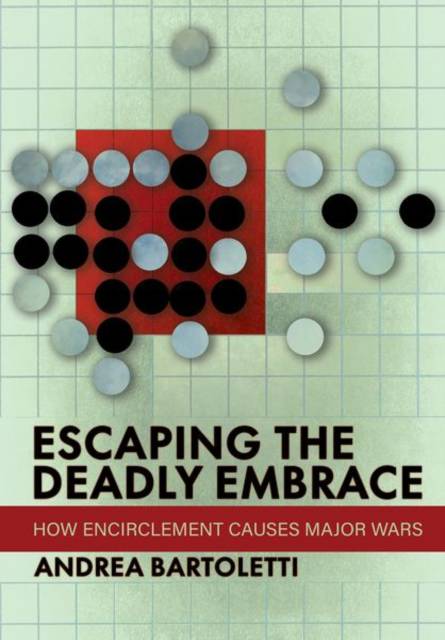
- Retrait gratuit dans votre magasin Club
- 7.000.000 titres dans notre catalogue
- Payer en toute sécurité
- Toujours un magasin près de chez vous
- Retrait gratuit dans votre magasin Club
- 7.000.000 titres dans notre catalogue
- Payer en toute sécurité
- Toujours un magasin près de chez vous
Description
Encirclement, Andrea Bartoletti argues, is an essential strategic possibility of the international system and a key trigger of major war. Using historical case studies, Escaping the Deadly Embrace examines how great powers try to escape the two-front war problem and seek to preserve their security.
Encirclement is a geographic variable that occurs in the presence of one or two great powers on two different borders of the surrounded great power. The surrounding great powers may not have the capacity to initiate a joint invasion. Yet their threatening presence triggers a double security dilemma for the encircled great power, which has to disperse its army to secure its borders. When the surrounding great powers become capable of launching a two-front attack, the encircled great power initiates war. This situation, disastrous in itself, can also lead to war contagion when other great powers intervene in the new conflict owing to the rival-based network of alliances.
Combining archival work and historiographical analysis, Escaping the Deadly Embrace demonstrates the efficacy of this by assessing three major wars: the Italian Wars, the Thirty Years' War, and World War I. These findings, Bartoletti shows, have important implications for future major wars. Challenging the current focus on the US-China rivalry, he argues that the most concerning strategic scenario is the encirclement of China by India and Russia.
Spécifications
Parties prenantes
- Auteur(s) :
- Editeur:
Contenu
- Nombre de pages :
- 252
- Langue:
- Anglais
- Collection :
Caractéristiques
- EAN:
- 9781501765919
- Date de parution :
- 15-11-22
- Format:
- Livre relié
- Format numérique:
- Genaaid
- Dimensions :
- 152 mm x 229 mm
- Poids :
- 526 g







